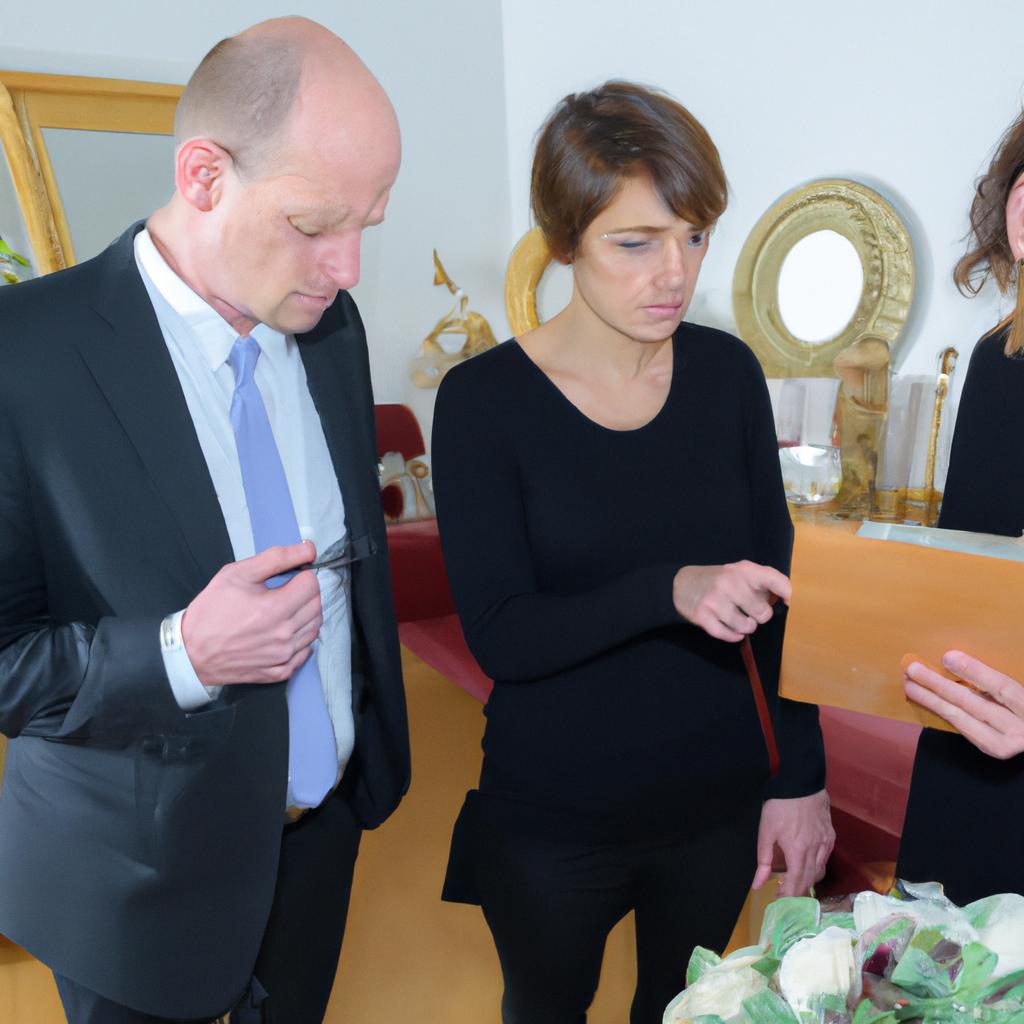Navigating the intricate maze of funeral arrangements can be a daunting task, especially during a time of grief and loss. At Morgan Legal Group in New York City, we understand the importance of ensuring that your loved one’s final wishes are carried out with care and precision. From choosing a funeral home to coordinating with clergy and organizing the service, our experienced team is here to guide you through every step of the process. Let us help you honor your loved one’s memory with a dignified and meaningful farewell.
Understanding the legal obligations and funeral preferences
When arranging a funeral, it is crucial to understand the legal obligations and preferences surrounding the process. One of the first steps is to determine if the deceased left any specific instructions regarding their funeral arrangements. These preferences may include burial or cremation, type of service, and any religious or cultural traditions to be followed.
It is also important to be aware of the legal requirements for arranging a funeral. This may include obtaining the death certificate, securing a burial permit, and ensuring that all necessary paperwork is completed. Additionally, it is essential to consider any financial responsibilities associated with the funeral, such as payment for services and burial expenses.

Selecting the appropriate funeral service provider
When arranging a funeral, one of the most crucial decisions you will have to make is . This choice will have a significant impact on the overall experience and the level of satisfaction you and your family will receive. To ensure that you choose the right provider, consider these important factors:
<ul>
<li><strong>Reputation:</strong> Research the reputation of the funeral service provider by reading reviews, asking for recommendations, and checking with the Better Business Bureau.</li>
<li><strong>Services Offered:</strong> Determine if the provider offers the specific services you require, such as traditional burial, cremation, or green burial options.</li>
<li><strong>Pricing:</strong> Compare prices from different providers to ensure you are getting the best value for your money.</li>
</ul>
Additionally, it is essential to meet with the funeral service provider in person to discuss your needs and expectations. Ask about their experience, licenses, and certifications to ensure that they are qualified to handle the arrangements professionally and ethically. By taking the time to carefully select the right funeral service provider, you can ensure that your loved one’s final farewell is handled with care and respect.

Arranging the logistics and financial aspects of the funeral
When arranging the logistics and financial aspects of a funeral, it is important to consider several key factors. First and foremost, it is essential to determine the budget for the funeral and associated expenses. This involves calculating costs for the casket, burial plot, funeral service, flowers, transportation, and any other necessary arrangements. Establishing a realistic budget will help ensure that the funeral is organized efficiently and within the means of the family.
Additionally, it is crucial to coordinate logistics such as scheduling the funeral service, arranging for transportation of the deceased, obtaining the necessary permits and paperwork, and notifying family and friends. Working closely with a funeral director can help streamline the process and alleviate some of the burden associated with planning a funeral. By carefully considering the logistics and financial aspects of the funeral, the family can honor their loved one in a meaningful and respectful manner.

Communicating with family and friends during the funeral planning process
In order to effectively communicate with your family and friends during the funeral planning process, it is important to keep everyone informed and involved. One way to do this is by holding regular meetings or conference calls to discuss the arrangements and gather input from all parties involved. Additionally, utilizing technology such as group messaging or email chains can help keep everyone on the same page and allow for quick updates and communication.
Another key aspect of arranging a funeral is to assign specific tasks to family members and friends, ensuring that everyone has a role to play in the planning process. This can help distribute the workload and prevent one person from becoming overwhelmed with all of the responsibilities. By delegating tasks such as contacting the funeral home, arranging transportation, or coordinating the reception, you can ensure that each aspect of the funeral is taken care of efficiently and effectively.
Q&A
Q: What are the first steps in arranging a funeral?
A: The first step is to select a funeral home or mortuary to assist with the planning process.
Q: How do families typically decide on the type of funeral service?
A: Families often consider factors like the religious or cultural traditions of the deceased, personal preferences, and budget when deciding on the type of service.
Q: What are some common elements of a funeral service?
A: Common elements of a funeral service include a viewing or visitation, a funeral ceremony, and a graveside service.
Q: How can families personalize a funeral service?
A: Families can personalize a funeral service by incorporating special readings, music, or rituals that hold significance for the deceased or their loved ones.
Q: What role does a funeral director play in arranging a funeral?
A: A funeral director helps families navigate the complexities of planning a funeral, from securing necessary permits and documents to coordinating transportation and coordinating with clergy or celebrants.
Q: What options are available for burial or cremation?
A: Families can choose between traditional burial, cremation, or alternative options like natural burials or green burials to align with their preferences and values.
To Wrap It Up
As we navigate the delicate process of arranging a funeral, may we find comfort in the knowledge that we are honoring our loved one in a meaningful way. Remember, every detail, no matter how small, is a reflection of the love and respect we have for the person we have lost. May the memories we share bring solace in our grief, and may we find peace in knowing that our efforts have honored their life in a beautiful and heartfelt way.

